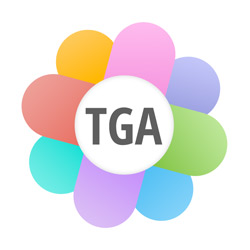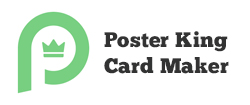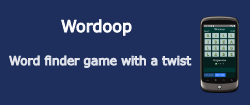Uncharted Waters: Navigating the World of Digital Libraries and Content Management

Today, we find ourselves exploring uncharted waters, where the depths of knowledge and information seem limitless. Central to this quest is the advent of product recognition AI, a technological phenomenon changing how we interact with digital content.
As we begin this journey, we'll delve into the intricacies of digital libraries and content management, unveiling the challenges and opportunities ahead.
Rise of Product Recognition AI
At the heart of this voyage is the rapid emergence of product recognition AI, a transformative force in content management. This revolutionary technology leverages the power of machine learning and computer vision to automatically identify and categorize products within vast digital libraries.
It empowers businesses to streamline inventory management, enhance customer experiences, and make data-informed decisions. From recognizing products within images and videos to facilitating personalized recommendations, the impact of product recognition AI is reshaping the landscape of digital content management.
Where Knowledge Resides
Digital libraries, resembling the great libraries of antiquity, hold the keys to our collective knowledge. Within their digital walls, they safeguard an array of materials, from ancient manuscripts to contemporary multimedia, offering a treasure trove for scholars, students, and the world's curious minds.
These vast repositories testify to the human quest for knowledge and serve as the foundation upon which we build our digital future.
Navigating the Content Management Landscape
Content management, the compass guiding our journey, is a multifaceted discipline that orchestrates digital content creation, organization, and distribution. Successful content management emphasizes comprehensive strategies, intuitive user interfaces, and adaptable systems.
By adhering to these principles, organizations ensure that their digital libraries remain dynamic, accessible, and responsive to the evolving needs of users.
Challenges of Metadata and Tagging
The cornerstone of effective content management is metadata, the invisible hand that gives meaning to digital content. Metadata tagging provides essential context for searchability and relevance. Yet, this simple task presents a labyrinth of challenges. It requires meticulous attention to detail and consistent practices to ensure content remains discoverable and structured.
Striking the right balance between automation and manual tagging is critical in optimizing content management workflows, making the journey more complex.
Content Preservation in the Digital Age
While we sail the digital seas, preservation becomes a central concern. The persistence of valuable content is paramount, necessitating guarding against data loss, format obsolescence, and the ever-evolving technological landscape.
It requires implementing robust digital archiving strategies that can withstand the test of time, even as they adapt to emerging formats and standards. As we venture forward, preserving our digital heritage remains critical to our voyage.
Role of User Experience in Digital Libraries
User experience (UX) emerges as a North Star guiding our course through digital libraries. The success of any digital library is intricately tied to how easily users can navigate and access its content.
User-centric design, responsive interfaces, and personalized content recommendations enhance UX. Furthermore, ensuring accessibility for all individuals, regardless of their abilities, is essential in crafting digital libraries that are truly user-friendly and inclusive.
Security and Copyright Concerns
As we venture deeper into these uncharted waters, we must be ever-watchful for the rocky shores of security and copyright. Safeguarding digital content from unauthorized access and maintaining copyright compliance is an ongoing challenge.
Digital libraries must employ vigilant security measures while respecting the intellectual property rights of content creators. The delicate balance between protecting digital assets and upholding copyright laws is crucial to ensuring digital libraries' continued integrity and longevity.
Artificial Intelligence and the Future of Content Curation
The application of artificial intelligence in content curation has emerged as a pivotal navigational tool. AI-powered algorithms analyze user preferences and behaviors, offering personalized content recommendations that enhance the user experience.
However, this raises questions about data privacy, transparency, and the potential for algorithmic bias. As we sail these waters, the ethical use of AI in content curation is a crucial consideration. Striking the right balance between personalization and privacy while ensuring that content remains diverse and inclusive will be a defining challenge in the years ahead.
Collaborative Spaces and Knowledge Sharing
Digital libraries are not just repositories but vibrant hubs of collaboration and knowledge sharing. The emergence of collaborative spaces within these libraries allows users to engage in research, share insights, and foster online communities. These spaces facilitate the exchange of ideas, making digital libraries not just static collections but active centers of intellectual discourse.
Leveraging these collaborative features in a secure and accessible manner is key to harnessing the full potential of digital libraries as engines of collective learning and innovation.
Final Words
The digital libraries and content management world is dynamic and ever-evolving, rich with opportunities and challenges. The rise of product recognition AI has given us powerful tools. At the same time, the enduring principles of preserving knowledge, fostering a seamless user experience, and upholding security and copyright standards remain paramount.
Navigating these uncharted waters is a journey of discovery and innovation, where we chart a course toward a future where digital libraries continue to be invaluable sources of information and inspiration for generations to come.
About The Author
Related Blog
View All-
5 Best Android Apps to Make Money
Everybody in this world wants extra money now and then. So as that it is about foolish as trying to make believe that will earn living sitting at home doing nothing there are no apps can make easy money for you. Whether it is about selling clothes at consignment ...
-
Are Your Applications Running Efficiently
Are your applications running efficiently? If not, you need to take to action to better their performance. You cannot afford for your applications not to be working to their best of their ability, which is why you need to ensure that they are optimized at all conceivable ...







